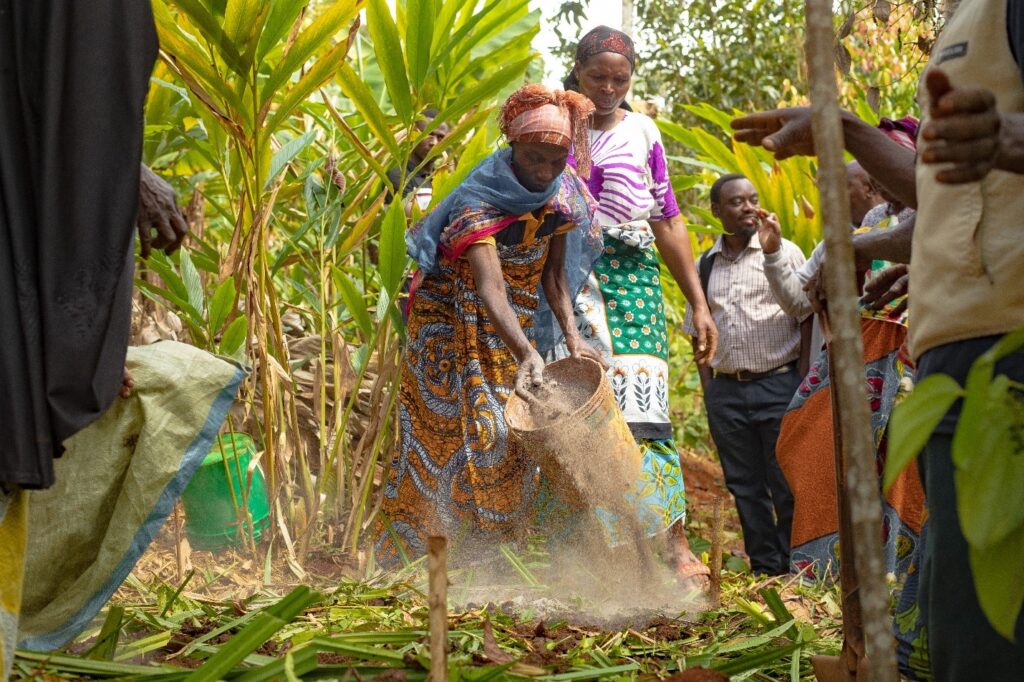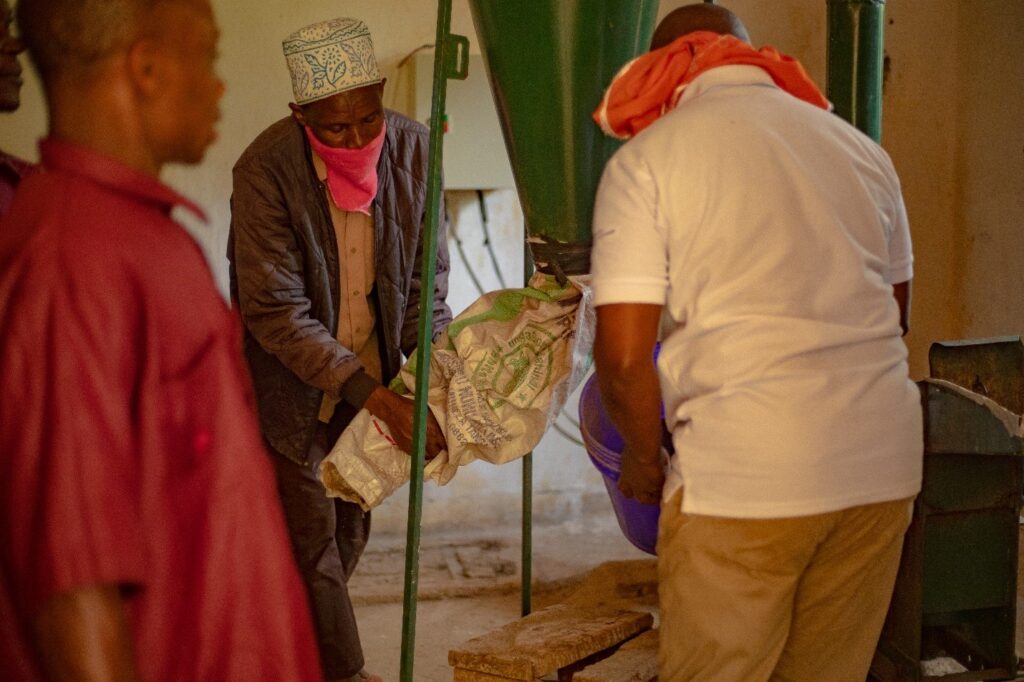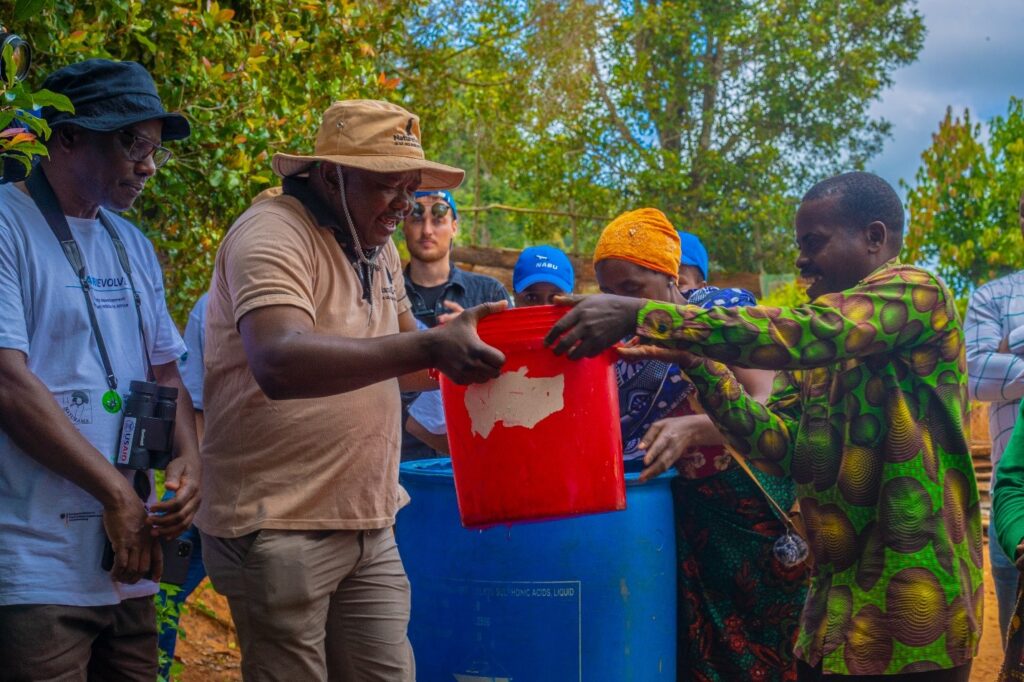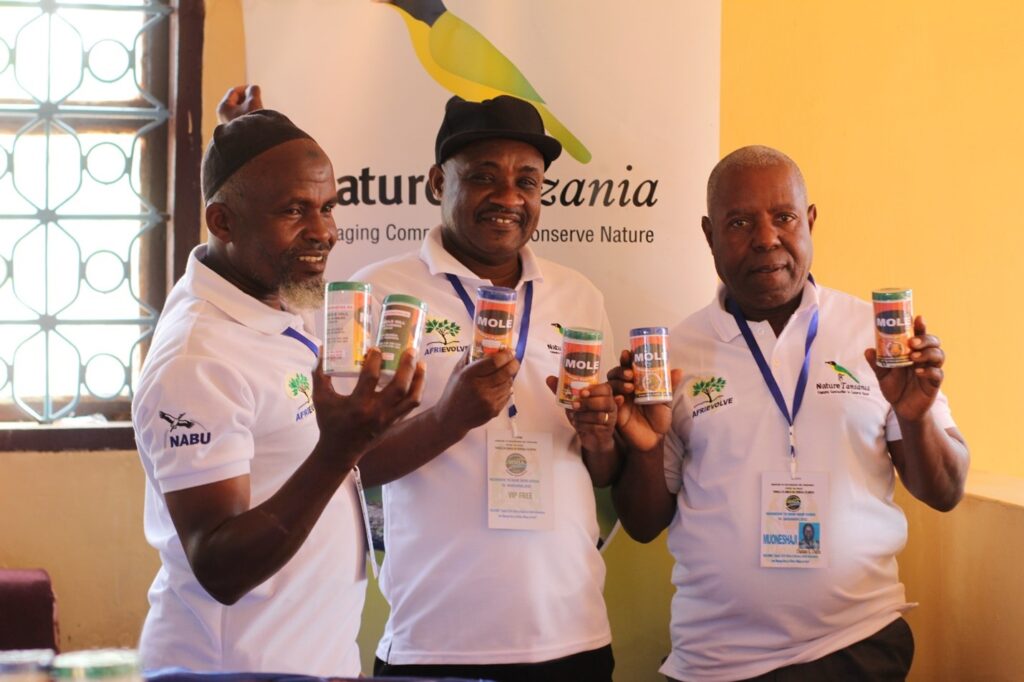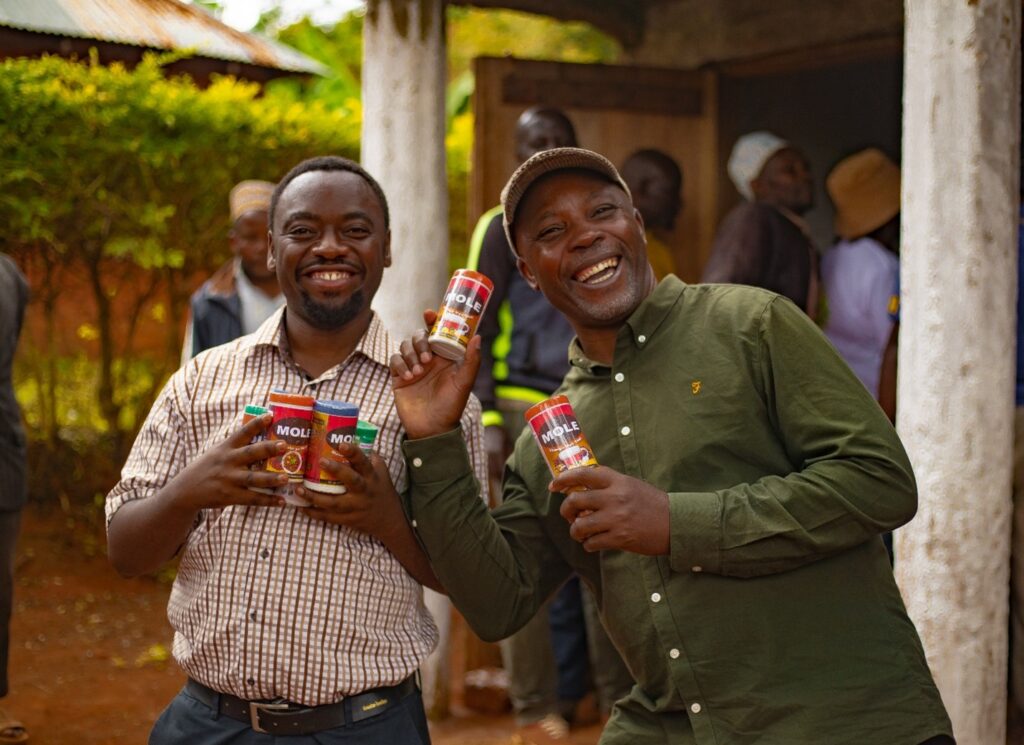Conservation friendly agriculture heralds a bright future for Tanzanian farmers
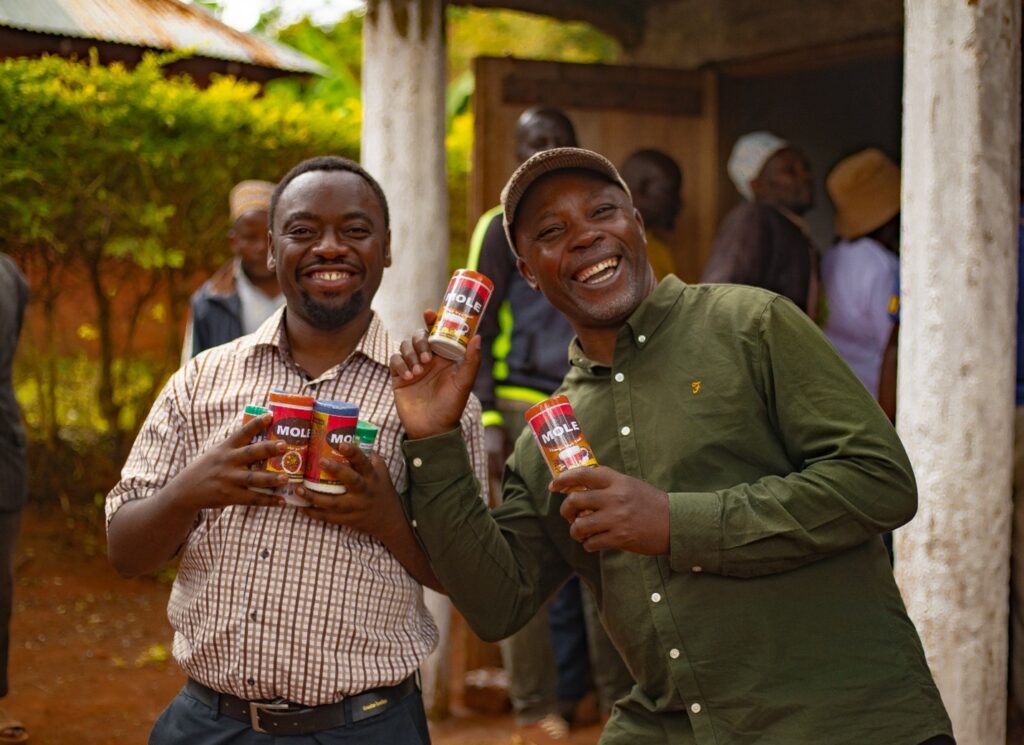
By Ken Mwathe
Amani, the Swahili word for peace, is an apt summary of the prevalent feeling as one starts the drive from Muheza District Headquarters in Tanga region, northeast Tanzania, towards the forested hilly landscapes of Amani Nature Reserve. The Reserve, located in Muheza and Korogwe Districts of Tanga Region, is an Important Bird Area (IBA) and hosts many endemic and endangered species of animals, plants, and birds including the Usambara Eagle Owl (Bubo vosseleri), and the Usambara Weaver (Ploceus nicolli) among others. The critically endangered Long-billed Forest Warbler (Artisornis moreaui) is also found here in addition to endemic tree frogs and chameleons.
On the winding drive towards the Tanzania Forest Service station, located in the Reserve, a mix of high canopy trees and beautiful shrubs stand out, merging into tree plantations and villages. Amani Nature Reserve is a haven for conservation, commercial forestry, tea growing as well as spice farming which is an important source of livelihood for local communities. The Reserve is surrounded by farmlands teeming with spices including cinnamon, cardamom, black pepper, and cloves, which are popular for food and beverage production in Africa, and across the world.
However, a growing population, high levels of poverty and increasing impacts of climate change have led to local communities encroaching on the pristine forests to farm, harvest firewood or cut forest trees for various uses. Unsustainable farming methods have depleted the soils, with farmers producing less food than before. Further, spice farming has been affected by the rise of middlemen who pay farmers a pittance for the produce, despite high spices’ prices, thus sinking the communities deeper into poverty.
To address this challenge, Nature Tanzania (BirdLife Partner) is promoting the uptake of climate smart agriculture in the Amani Forest Nature Reserve through the AfriEvolve project, which is supported by the German Federal Ministry for Economic Cooperation and Development (BMZ) and Nature and Biodiversity Conservation Union (NABU), BirdLife Partner in Germany.
The project is also being implemented in five other African countries including Kenya, Uganda, Ghana, Burkina Faso, and Côte d’Ivoire. In Tanzania, the project is helping communities to better cope with current and future climate variability, by building resilience to climate change effects affecting spice farming.
In September 2022, a team of BirdLife International partners from Uganda, Kenya, and Germany visited Amani Nature Reserve to witness efforts being made to turn the tide. Hosted by Nature Tanzania, the partners visited three villages where climate smart agriculture approaches were demonstrated by local farmers. The approaches include building of trenches to conserve water, making of organic manure, in addition to processing and packaging of spices. These techniques are not only good for agriculture, but also for the environment.
A key aspect of the project is providing financial support to the farmers. Nature Tanzania has been providing loan facilities to the farmers, to help them improve this venture. “Nature Tanzania through the Community Revolving Fund (CRF) system has been providing soft loans to spice farmers in Amani Nature Forest Reserve to improve spice marketing and processing. The CRF has helped Mbomole Hill spice farmers to intensify its spice business by improving packaging, purchasing of processing machine and accessing new markets. More than 100 farmers have benefitted from the loan facility, which now stands at USD 5,020 (Tsh 11,707,250). More farmers are expected to benefit during the project”, said Scholastica Mbinile, the AfriEvolve Project Officer, Nature Tanzania.
The visit also provided partners, an opportunity to learn best practices from the Tanzania chapter. “The peer-to-peer learning is one of the best elements of the AfriEvolve project! It was fascinating to see a community in Amani so similar in vulnerability and dependence on natural resources like those in Echuya, Uganda but in completely different environments. Whereas technical teams are taking the learning visits, I will be glad to see community members having similar experiences in future”, noted Achilles Byaruhanga, Executive Director, Nature Uganda.
“Amani biosphere reserve is the best example of an environment where people engage in livelihood production in ways that support future generations by ensuring the access and use of land is climate smart. This is made possible by planting of spices including cardamoms, cloves, cinnamon, black pepper, which include tree-based crops that make the landscape a one of a kind agro-forestry system”, said Caroline Kabilu, AfriEvolve East Africa Cluster Coordinator.
“The AfriEvolve project demonstrates the power of BirdLife Partners working together – the Power of Many. It shows the power of capacity building and sharing of experiences through peer-to-peer learning. We are confident that through this project, a critical mass of skills and knowledge will be built, made available and scaled up within the BirdLife Africa Partnership. This will ensure biodiversity continues to thrive in complex landscapes like Amani and that livelihoods and climate resilience of local communities are secured”, noted Dr Kariuki Ndang’ang’a, Regional Director for Africa, BirdLife International.
For farmers in the region, the AfriEvolve project has been instrumental in improving their livelihoods. “Through the loan we have acquired from Nature Tanzania, we were able to improve our products packaging. We now have a spice processing machine which enables us to process about one tonne of spice-based products. We thank Nature Tanzania for this intervention. We are now able to make different spice products such as pilau masala, tea masala, binzari masala, chicken masala, beef masala, fish masala, black paper, cloves, cinnamon, and cardamom. We look forward to improve the quality of our products to meet national and international market needs”, concluded Dastan Daffa, Chairman of Mbomole Hill spice farmers group.
AfriEvolve is an initiative running from March 2021 to December 2023 implemented by Nature Kenya, Naturama, Nature Uganda, the Ghana Wildlife Society, Nature Tanzania and SOS Forêts. The Nature and Biodiversity Conservation Union (NABU – BirdLife in Germany) coordinates the project and cofunds it with BMZ, the German Federal Ministry for Economic Cooperation and Development.

